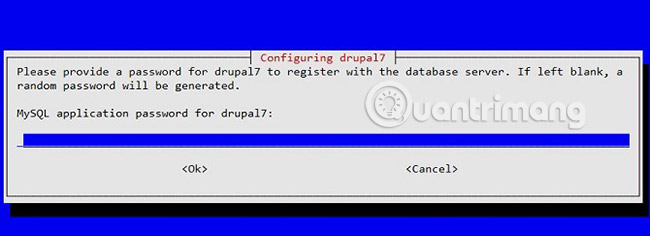Is Drupal or WordPress the best open source CMS?
Chances are, when you think about building websites, from WordPress almost immediately appears in your head. WordPress 'dominates' thanks to its market share and accessibility.
However, it is not the only available content management system (CMS). Drupal is also a solid option with lots of functions. But which platform is better? See the following section on comparing Drupal and WordPress, as well as find out what is the best open source CMS!
Is Drupal or WordPress the best open source CMS?
- Should you use WordPress or Drupal?
- Easy to use
- Community and resources
- Security capabilities
- Cost and price
- Flexibility
- Popularity
Should you use WordPress or Drupal?

WordPress and Drupal have many similarities. Both are open source content management systems with powerful feature sets. However, the user base for each CMS is different. Anyone, from a beginner looking to build a non-cumbersome blog to webmasters of many websites that need a lot of customization, can use WordPress.
Drupal, on the other hand, is more suitable for users who already have web development experience. In addition, having high performance or scalability means that Drupal works better for business websites than average users.
- WordPress: Anyone, from beginners to businesses.
- Drupal: Businesses and corporate environmental sites.
Easy to use
The first blogging platform of many people is usually WordPress. People often start with a free WordPress.com blog before developing into a self-hosted WordPress website. Most web hosting providers, such as Bluehost and Hostgator, offer simple settings to help you start blogging in minutes. Even if you are installing on your own hardware, the process is not complicated.
- Which platform is better for WordPress.com and WordPress.org?

However, Drupal is more complicated. Although daily use is manageable, installing Drupal is not as intuitive as WordPress. Many people have used both platforms, even installing WordPress and Drupal on devices like Raspberry Pi. Although installing WordPress doesn't have any problems, installing Drupal requires a few troubleshooting steps.
Even when it comes to everyday use, WordPress is also a platform that is easier to use. Its WYSIWYG editor provides a multitude of functions. Overall, WordPress is more user-friendly than regular users. Drupal is not too difficult to use, but requires you to spend a lot of time researching and learning more.
Winner: WordPress
Community and resources

Both WordPress and Drupal benefit from developer communities. As such, you will find tons of resources available from legitimate sources. However, WordPress easily defeats Drupal. As the most used CMS, Wordpress has a larger resource. More than 75 million websites run on WordPress compared to about 1 million websites running on Drupal. Drupal is still the third most used CMS after Joomla and WordPress, although in fact Drupal is a better platform than Joomla.
Interestingly, the number of websites running on Drupal is less but it is a favorite CMS with high traffic. League of Legends and Box.com are two of the most popular Drupal-based websites that use this open source content management system. Boasting more than 40,000 plugins and thousands of free themes, WordPress brings more resources. Drupal still has many popular plugins and themes, but significantly less than WordPress.
Winner: WordPress
Security capabilities

Drupal beat WordPress in terms of security. Many business websites, including NIH.gov, use Drupal rather than WordPress. Because WordPress has a much larger market share, it is more vulnerable to network attacks. Plugin for WordPress is also capable of 'fighting' against cybercrime, but overall, Drupal is a safer platform. Along with regular monthly updates, Drupal is a safer WordPress than CMS.
With enterprise-class security features and reports, it's no surprise that Drupal is popular with small, but high-traffic websites. For example, whitehouse.gov works on Drupal. Sucuri found that in 2016, the top three CMSs were most affected by hackers, WordPress (at 74%), followed by Joomla and Magento. Obviously, with a market share of about 60%, WordPress will be attacked more than Drupal.
That doesn't mean WordPress is not safe. Just the popularity of WordPress makes it the main target of cybercrime. Moreover, WordPress plugins also cause security vulnerabilities. If security is your main concern, choose Drupal. Notably, this is a good option for business websites.
Winner: Drupal
Cost and price
Thankfully, the cost of using WordPress and Drupal is free. Of course it was only when I started. Since both CMSs are open source, you can download and install both for free. However, you will need some kind of hosting. WordPress.com is a free hosting platform, although custom domain names require upgrading to paid versions.
Unfortunately, Drupal doesn't have a free hosting option. However, you can find fairly reasonable storage solutions and even run Drupal on your own hardware. However, if you do so, the cost will increase quite a lot.
Winner: Wordpress
Flexibility
Drupal finally defeated Wordpress in terms of flexibility. You will find customizable options, from custom content types to permissions and even features, such as multilingual capabilities included by default. WordPress themes and plugins can compensate somewhat, but it's not enough to beat the absolute adaptability of Drupal.
However, there is a cost incurred. Unless you are a developer, you may need to hire a developer when running a website based on Drupal. Even if you are a developer, you may still want to hire an outside developer to help.
Winner: Drupal
Popularity

In some ways, content management systems are like high schools, because popularity is so important. WordPress removes the competition in CMS market share (because it alone accounts for nearly 60%). This means that WordPress has more plugins, themes, communities and resources. Sure, Drupal also has a loyal fan base (usually developers). Popularity is not a big problem, but it is very important and WordPress cannot even be threatened by other competing CMS in the market.
Winner: WordPress
For the majority of users, WordPress is the best platform. It suits the needs of everyone, in every situation, from a single blogger to great content sites like Mashable, and even e-commerce websites. Drupal is a more complex CMS with advanced security. As such, it is more popular with government websites and large traffic sites like NBC.
Because of the popularity and the large number of resources available, from plugins and free themes to advanced tutorials, WordPress is the best open source content management system. WordPress simplifies the process of using CMS. Drupal basically requires users to be familiar with development, as it is a content management system for developers.
Drupal is a great open source CMS, but WordPress is a better choice for the majority of users.
Wish you can choose for yourself the right platform!
See more:
- 5 mistakes everyone mistakenly thinks about WordPress
- Design dynamic website with Drupal source code 7
- Instructions for creating websites with WordPress from A to Z